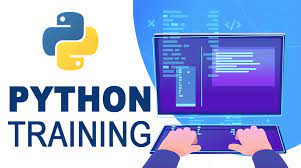Education
From Scripting to Automation: The Importance of Python Training in IT
by Author
-
Sunday, December 10, 2023
125 Views
In the dynamic landscape of Information Technology (IT), the demand for automation is soaring, and Python has emerged as a programming language at the forefront of this revolution. Python’s versatility, readability, and extensive libraries make it a powerhouse for scripting and automation in various IT domains. This article explores the significance of Python training in IT, tracing its journey from a scripting language to a driving force behind automation, and how professionals equipped with Python skills are becoming invaluable assets in the tech industry.
Python in IT: A Scripting Foundation
Scripting Simplified with Python
Python’s simplicity and readability have made it a go-to language for scripting tasks. In the early stages of its adoption in IT, Python was primarily utilized for automating repetitive tasks, simplifying complex processes, and enhancing efficiency. Scripting with Python proved instrumental in handling tasks such as file manipulation, data parsing, and system administration.
Python as a Learning Language
The readability of Python code has contributed significantly to its popularity as a learning language in the IT realm. Many beginners in programming find Python’s syntax intuitive, making it an ideal language for grasping fundamental concepts. Aspiring IT professionals often start their coding journey with Python, laying the groundwork for more advanced applications in the field.
Evolution of Python: From Scripting to Automation
Expanding Horizons with Libraries and Frameworks
As Python gained traction in IT, its ecosystem evolved with the introduction of powerful libraries and frameworks. Libraries like NumPy for numerical computing, Pandas for data manipulation, and Django for web development broadened Python’s applicability. This expansion allowed professionals to move beyond simple scripting tasks and delve into more complex domains such as data science, machine learning, and web development.
Automation Revolution with Python
The true turning point for Python in IT came with its pivotal role in automation. With the rise of DevOps practices and the need for continuous integration and continuous delivery (CI/CD), Python emerged as a linchpin for orchestrating and automating various stages of the software development lifecycle. From configuration management with tools like Ansible to automating testing and deployment pipelines, Python became the glue that held together modern IT workflows.
Python Training: A Strategic Investment for IT Professionals
Mastering Core Concepts
Python training goes beyond the basics of syntax and semantics. It involves mastering core concepts such as object-oriented programming, data structures, and algorithmic thinking. A solid foundation in these areas equips IT professionals with the skills needed to architect efficient and scalable automation solutions.
Advanced Topics and Specializations
Python training programs often cover advanced topics and specializations to cater to the diverse needs of IT professionals. Specialized courses in data science, machine learning, web development, and network automation provide a pathway for individuals to deepen their expertise and apply Python in specific domains within IT.
Python in Action: Real-world Applications in IT
Infrastructure as Code (IaC)
Python’s significance in IaC cannot be overstated. Tools like Terraform and Ansible leverage Python scripts to define and manage infrastructure configurations. This allows IT teams to treat infrastructure as code, enabling version control, collaboration, and reproducibility, leading to more reliable and scalable systems.
Data Science and Analytics
Python’s popularity in data science is unparalleled. Libraries like NumPy, Pandas, and scikit-learn empower data scientists to analyze, visualize, and model data efficiently. Python’s role in data science extends to machine learning, where frameworks like TensorFlow and PyTorch enable the development of advanced models.
Web Development and Automation
Frameworks like Django and Flask make Python a preferred choice for web development. Additionally, Python’s capabilities extend to browser automation using tools like Selenium, facilitating automated testing and interaction with web applications.
Industry Recognition and Job Market Trends
Python as a Top Skill in IT Job Listings
Python consistently ranks among the top programming languages in various industry surveys. Its versatility and applicability across diverse IT domains make Python a sought-after skill in job listings across industries. Professionals with Python expertise find themselves well-positioned in a competitive job market.
Versatility Opens Doors
The versatility of Python creates opportunities for professionals to transition between roles seamlessly. Whether working on data analytics, infrastructure automation, or web development, individuals trained in Python can navigate through different facets of IT with ease, contributing to their adaptability and long-term career prospects.
Conclusion:
From its origins as a scripting language to its current status as a linchpin of automation in IT, Python’s journey is emblematic of its adaptability and resilience. Python Training Institute In Patna has become a strategic investment for IT professionals, opening doors to a myriad of opportunities in an ever-evolving industry.
As IT continues to embrace automation as a fundamental paradigm, Python stands tall as the language of choice, empowering professionals to script, automate, and innovate in the dynamic landscape of Information Technology. For those embarking on a career in IT or seeking to upskill, Python training is not just a pathway; it’s a gateway to the forefront of technological innovation.






